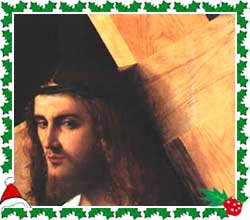 The history of Christmas share its roots back to about 4000 years when various customs and traditions associated with the festival of Christmas were observed centuries before the birth of Jesus. Although the exact day of Christ Child's birth was never clear but legend has it that Christmas is being celebrated since 98 A.D. In 137 A.D., the Bishop of Rome declared the birthday of Christ Child to be celebrated as a solemn feast. However, many renowned historians state that Christmas celebrations began as early as in 336 A.D. in Rome, while another Bishop of Rome, Julius I, chose December 25 as Christmas. Since then, this day got popularized as Christmas around the world as evolution of Christianity took place rapidly. However, many traditions and customs followed during Christmas celebrations trace their history from some of popular festivals celebrated by early civilizations that gave way to Christmas.
The history of Christmas share its roots back to about 4000 years when various customs and traditions associated with the festival of Christmas were observed centuries before the birth of Jesus. Although the exact day of Christ Child's birth was never clear but legend has it that Christmas is being celebrated since 98 A.D. In 137 A.D., the Bishop of Rome declared the birthday of Christ Child to be celebrated as a solemn feast. However, many renowned historians state that Christmas celebrations began as early as in 336 A.D. in Rome, while another Bishop of Rome, Julius I, chose December 25 as Christmas. Since then, this day got popularized as Christmas around the world as evolution of Christianity took place rapidly. However, many traditions and customs followed during Christmas celebrations trace their history from some of popular festivals celebrated by early civilizations that gave way to Christmas.Mesopotamian: New Year
Mesopotamians believed in many gods, mainly in Marduk. It was believed that Marduk would battle with monsters of chaos during winters and to assist him in the battle, they celebrated a 12-day festival called "Zagmuk". Many historians indicate that the 12-day celebration of Christmas is derived from here.
Europeans: Winter Solstice
In pagan times, early Europeans believed in evil spirits, witches, ghosts and trolls. On the arrival of Winter Solstice, nights became longer and days shorter. So, they used to perform special rituals and celebrations in the hope of the sun coming back soon.
Scandinavia: Yuletide
In Scandinavia, during the winter months, the sun mostly disappeared for many days. After 35 days of long sunless days, when the first ray of sun was sighted, a great festival was held called Yuletide and was marked by the lavish Yuletide feast. The special feast tradition is believed to be involved in Christmas celebration from this tradition.
Roman: Saturnalia
Ancient Romans used to celebrate their festival, "Saturnalia" which began in the middle of December and concluded on January 1. The celebration included masquerades on streets, big festive meals, visiting friends, and exchange of good-luck gifts called Strenae. The church eventually was successful in taking accepting merriment, lights, gifts from "Saturnalia" festival, and merging them with the celebration of Christmas.
